Auburn University’s Board of Trustees has approved the construction...
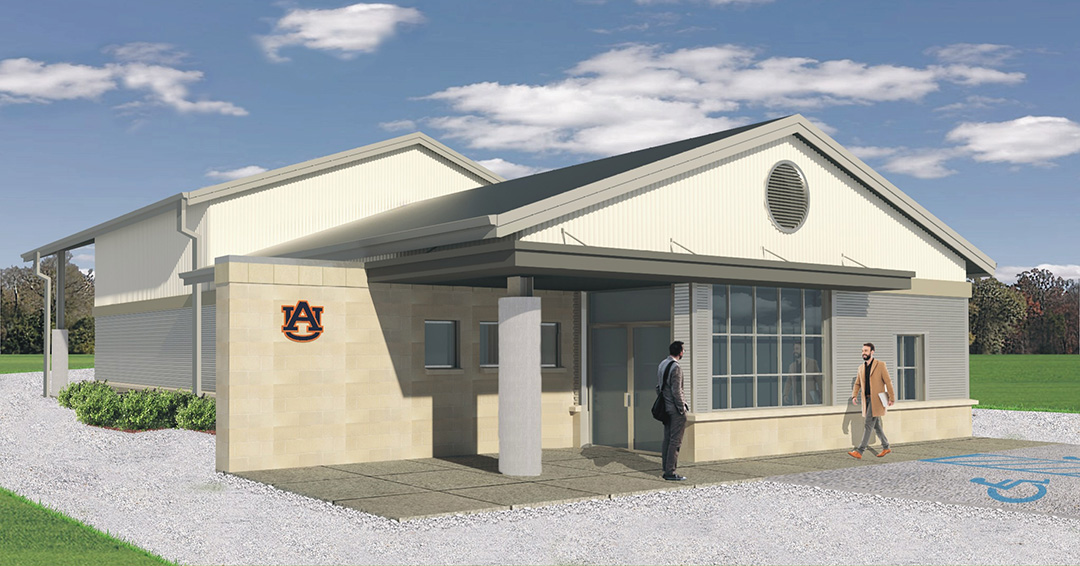

Auburn University’s Board of Trustees has approved the construction...
A first-generation Auburn University College of Agriculture student is the recipient of the fall 2025 Dean’s Award for Academic and Professional Excellence. Madison Renfroe, a candidate for a Bachelor of Science in agricultural communications, was selected for the...
Auburn University has named Eve Brantley as the 1862 Extension director for the Alabama Cooperative Extension System, effective Jan. 1, 2026, Auburn President Christopher B. Roberts announced today. The appointment follows years of Brantley's leadership within Alabama...

Interim Dean of the Auburn University College of Agriculture Dr. Arthur Appel announced this week the publication of the college’s new strategic plan. The plan follows...
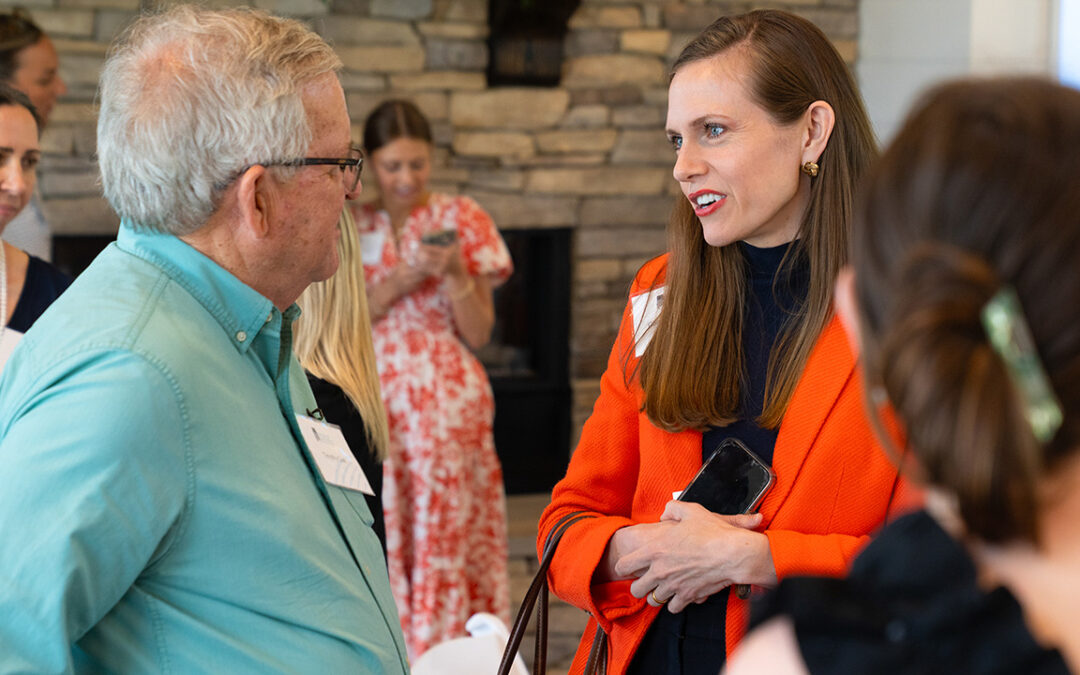
Auburn College of Agriculture to host annual luncheon on Thursday, Feb. 25 An alumnus of the Auburn University College of Agriculture and his entrepreneurial, cofounder...
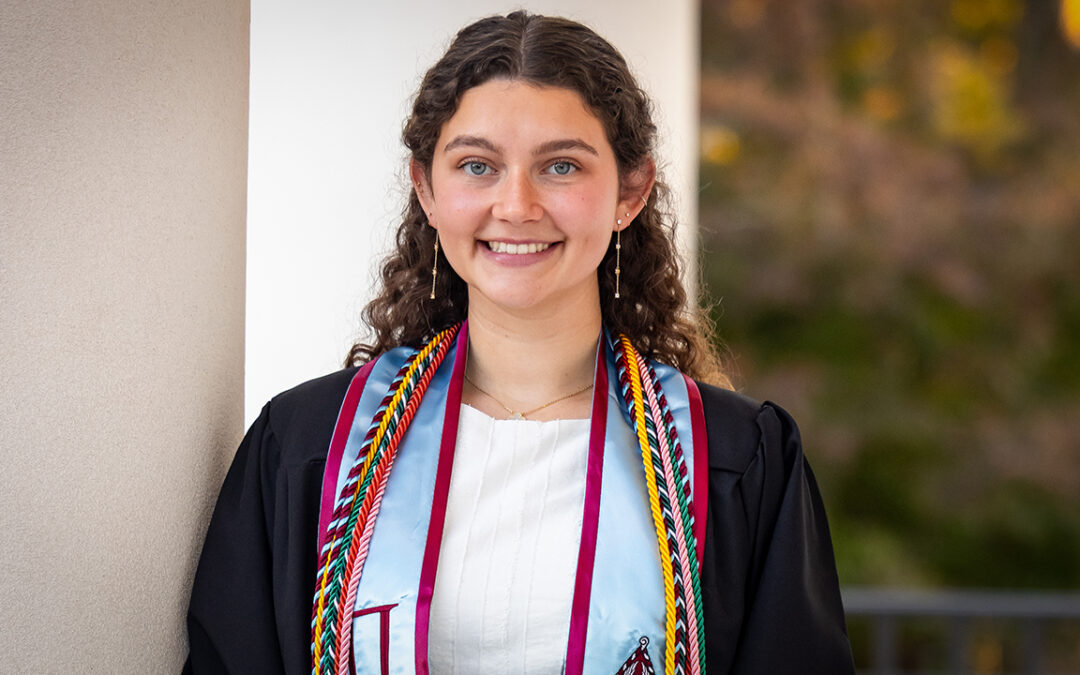
A candidate for a Bachelor of Science in agricultural business and economics is the fall 2025 student marshal for the Auburn University College of Agriculture. Olivia...

When Dr. Rana Waqar Tabish came to Auburn to begin working toward his PhD, he already had one doctorate under his belt….

By Graham Brooks New and special beer releases are a point of pride at New Realm Brewing–Auburn and that will continue with the unveiling of Pine Hill Pumpkin Amber as a new pumpkin beer just in time for spooky season and Oktoberfest. Named after Auburn’s oldest...
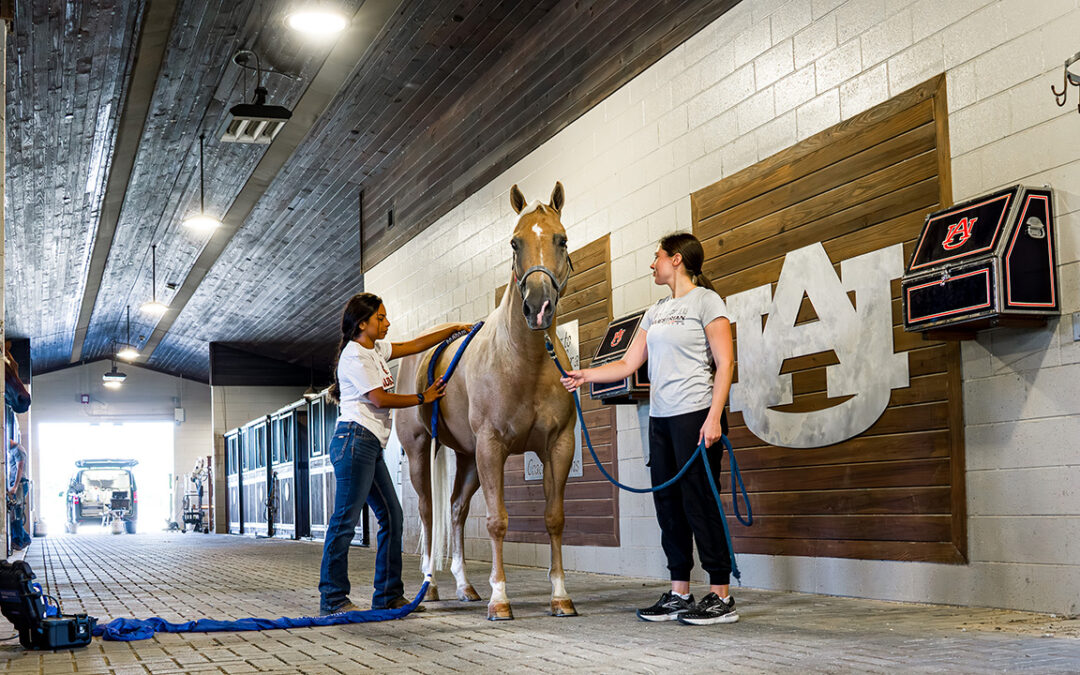
At Auburn University, students are taught to meet a practical world with hard work, knowledge to work wisely, and minds and hands trained to work skillfully. Few places embody this charge outlined in the Auburn Creed more vividly than the Auburn University Equestrian...

It was in Honduras, at the Soto Cano Air Base, where Capt. Tolulope Morawo and Lt. Col. Steven “Mark” Pelham met an enemy they had never encountered before. Morawo, an entomologist, and Pelham, a veterinarian, were on Army Reserve deployment facing the New World...
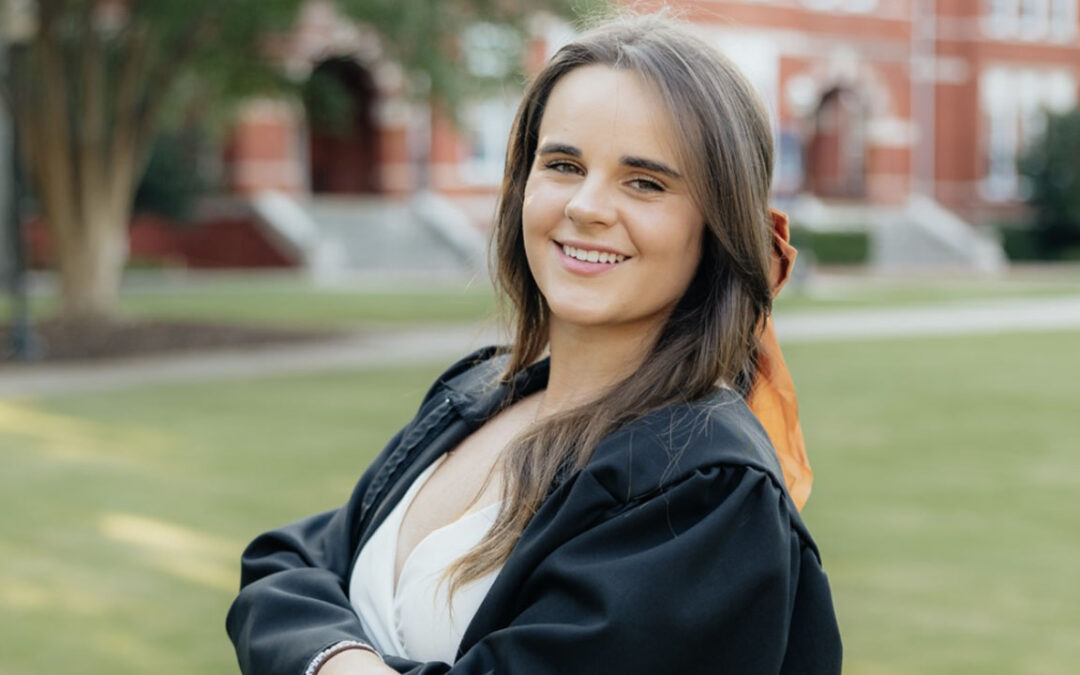
The College of Agriculture Scholarship Committee selected Alexandra “Lexie” Hare as the summer 2025 Dean’s Award recipient, recognizing her for academic excellence and service to the College of Agriculture. Hare graduated Saturday with a Bachelor of Science in...
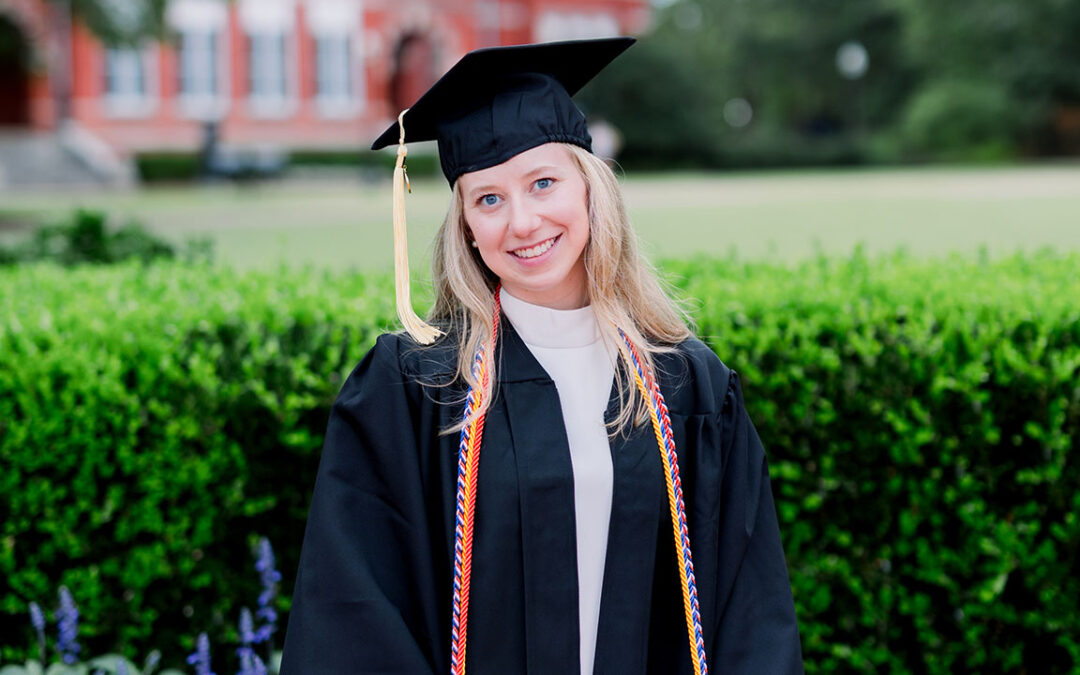
A Madison, Alabama, native will lead her classmates into the 2025 commencement ceremony at Auburn University this Saturday. Ella Taylor, an agricultural science major with a minor in poultry science, is the August 2025 graduation marshal for the College of...
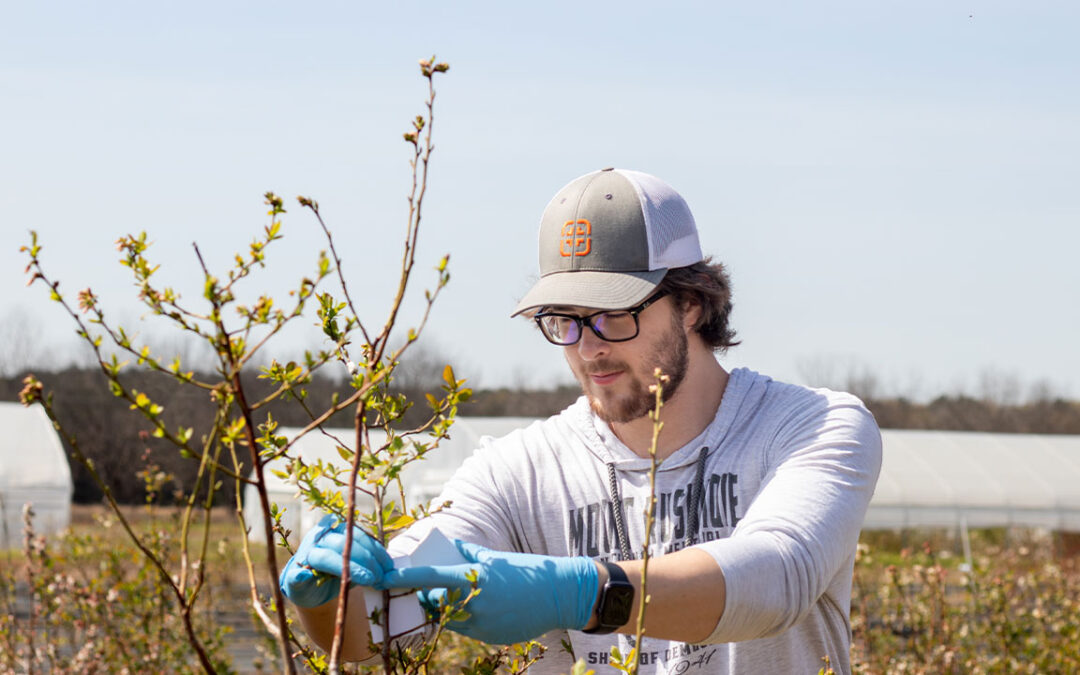
By Amy Weaver Auburn University often adds academic programs in response to workforce demand and societal needs. One of the latest additions is a major in biological and agricultural technology management. With the acronym BATM, it is colloquially called the “Batman”...
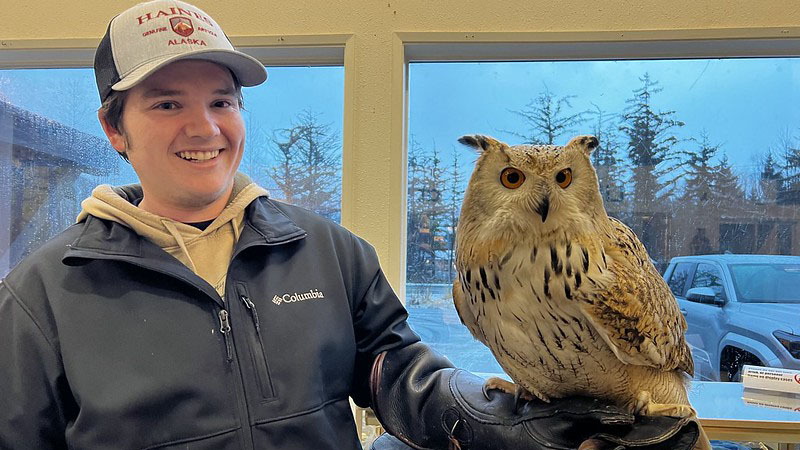
By Chris Anthony Far from the rolling plains of Alabama, the tiny mountain community of Haines, Alaska, (population 1,700) might be the last place you would expect to hear a hearty “War Eagle” as an eagle soars overhead. But that is slowly changing with Gabe Hallmark...
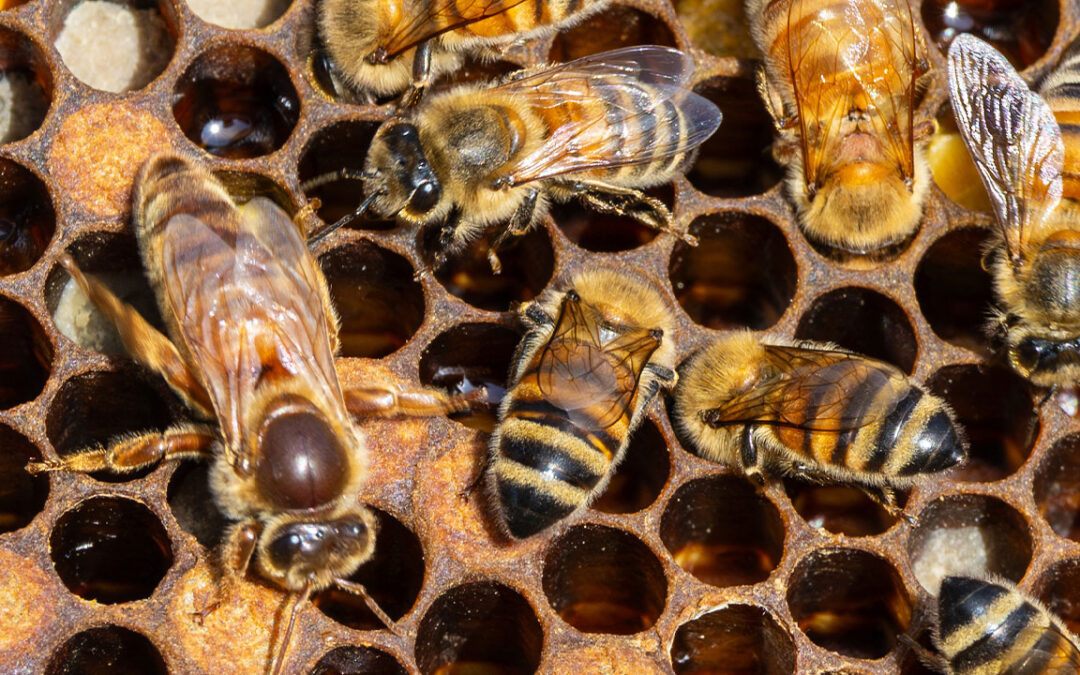
The annual U.S. Beekeeping Survey results are in for the 2024-2025 calendar year. In collaboration with Auburn University, the Apiary Inspectors of America, Oregon State University and others, the national survey estimated that 55.6% of managed honey bee colonies were...
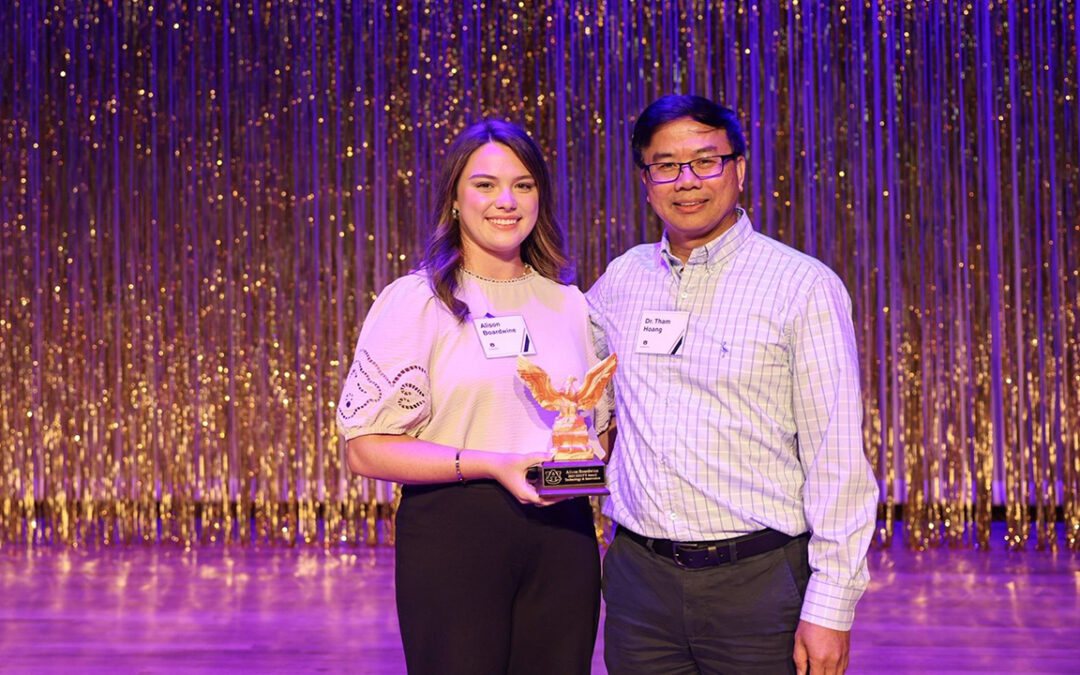
Recent graduate Ali Boardwine received a particularly special accolade before graduating on May 11 with a Bachelor of Science in bioprocess engineering and minors in business and public health. The Career Discovery and Success office within the Office of the Provost...

The Auburn University College of Agriculture and Campus Dining recently added four new container farms to its vertical farming operation. The four new farms, outfitted in shipping containers, are from AmplifiedAg, a leader in indoor agriculture. Auburn now has six...
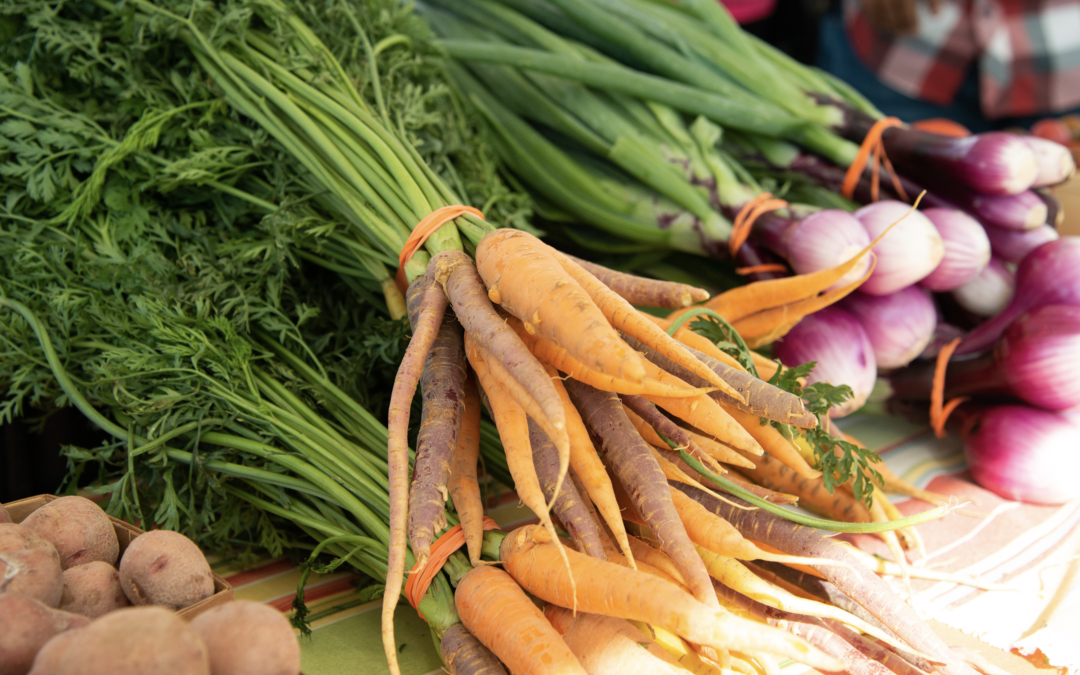
Hosted by the Auburn University College of Agriculture, The Market at Ag Heritage Park is an open-air, growers-only farmers market offering fresh, locally grown fruits and vegetables, herbs, ornamental plants and cut flowers as well as locally produced jams and...

Advises future ag students to get involved The spring 2025 graduation marshal for the Auburn University College of Agriculture is a familiar face around Comer Hall. Will Rich was selected from among the agriculture spring graduates to represent the college at the...
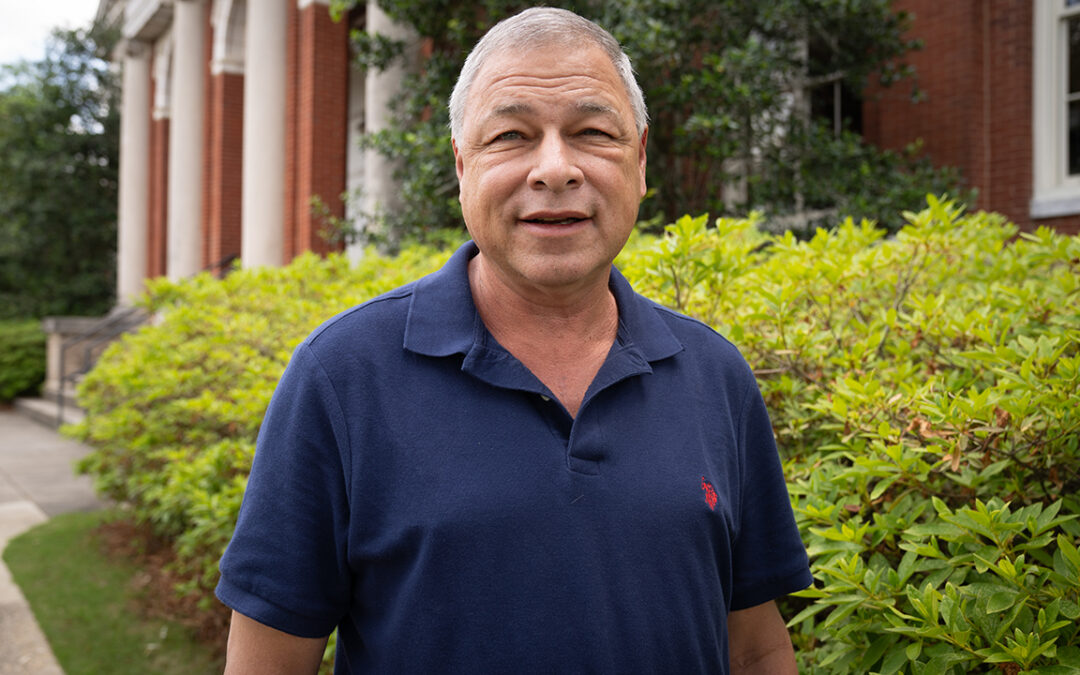
William Batchelor has been tapped as the new director of the Auburn University Water Resources Center, effective immediately. As director, he will lead a team of scientists working with communities, farmers, governments and agencies across Alabama to improve water...
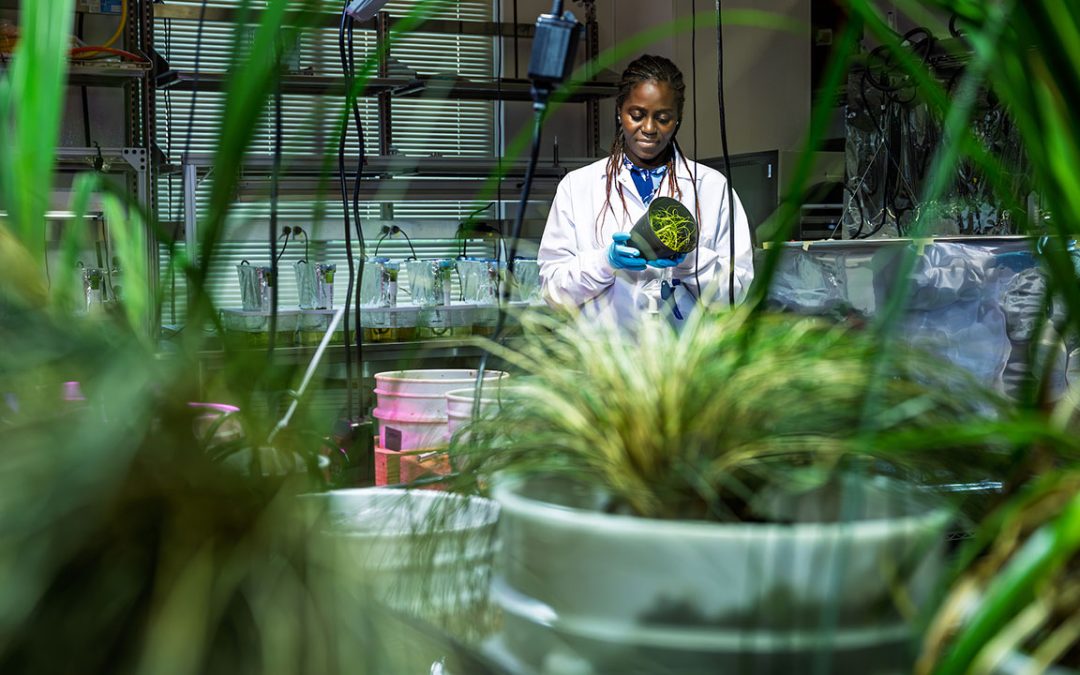
By Amy Weaver Contrary to what the name might suggest, the work currently happening in the Green Infrastructure Lab at Auburn has nothing to do with green-colored roads or buildings. No Emerald City here. “Green infrastructure is an approach to managing water and...

Three students in the College of Agriculture recently received distinguished honors from the Auburn University President’s Office. Savannah Busby received the Presidential Graduate Opportunity Fellowship, a highly competitive opportunity awarded to only a few incoming...

Following a national search, Mykel Taylor was named head of the Auburn University Department of Agricultural Economics and Rural Sociology, effective April 15. She had served as interim head of the department since fall 2024. “Dr. Taylor’s effective leadership, along...
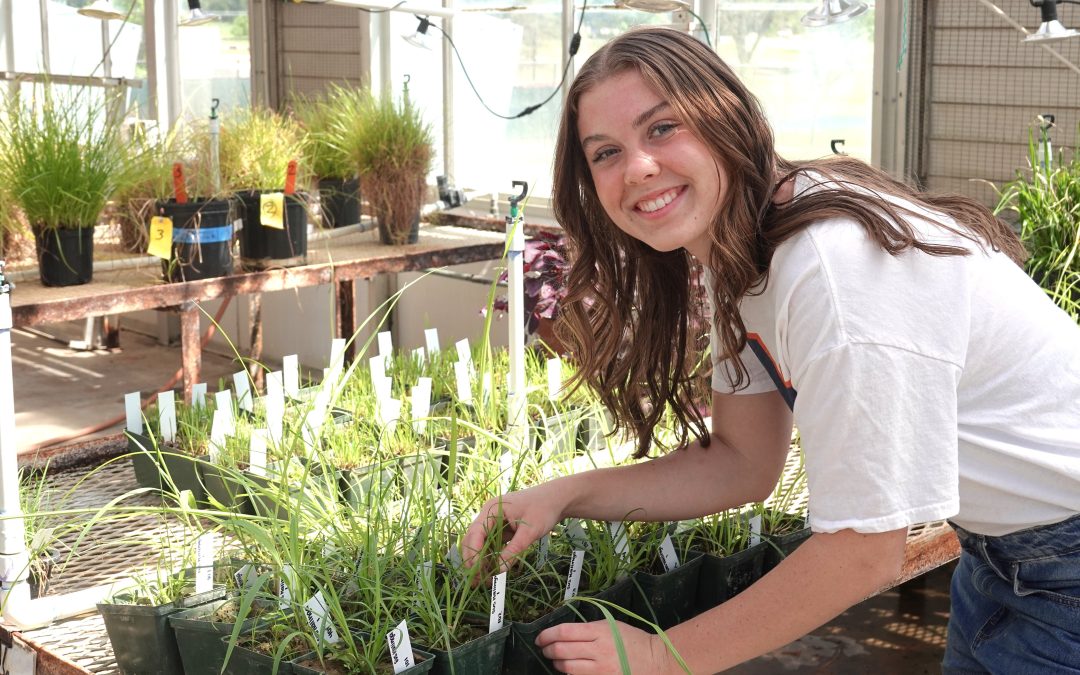
Auburn University College of Agriculture student Leah Johnson received a highly competitive collegiate internship with HudsonAlpha, a premier institute for biotechnology. She is the second student from the applied biotechnology major in the Department of Entomology...
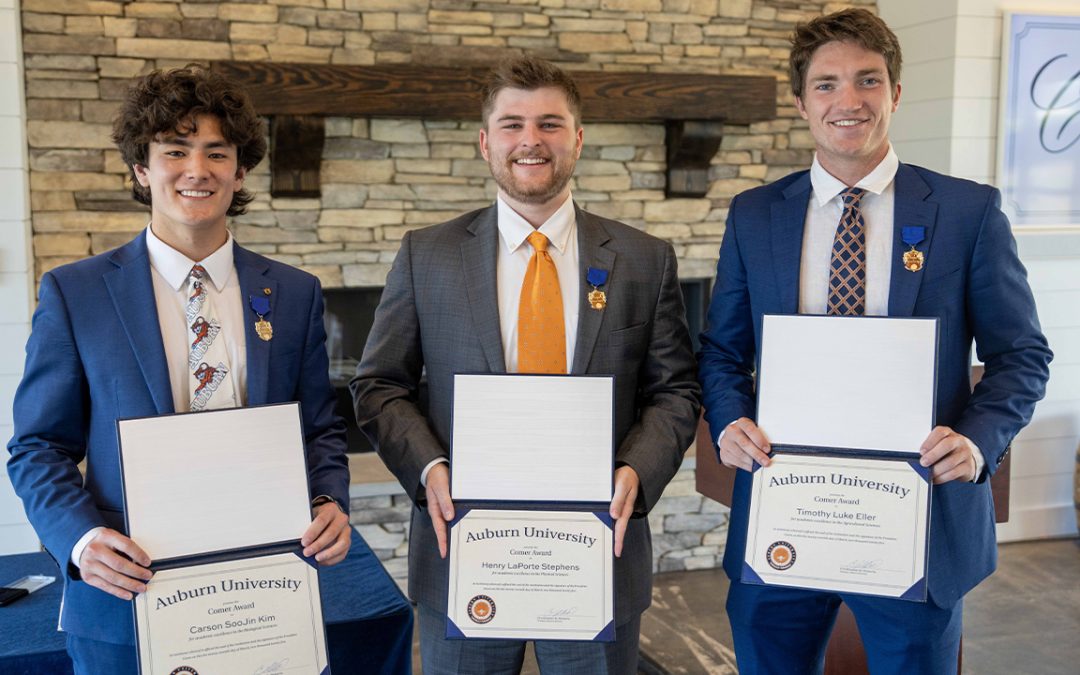
Hosted by the College of Sciences and Mathematics, in collaboration with the College of Agriculture, this year’s Comer Awards were presented to three graduating Auburn University students….

Geoff Williams, associate professor, graduate program officer and longtime director of the AU-Bees Lab, is director of the new Auburn University Bee Center, effective Tuesday, April 1. In February, the Board of Trustees approved the establishment of the Auburn...
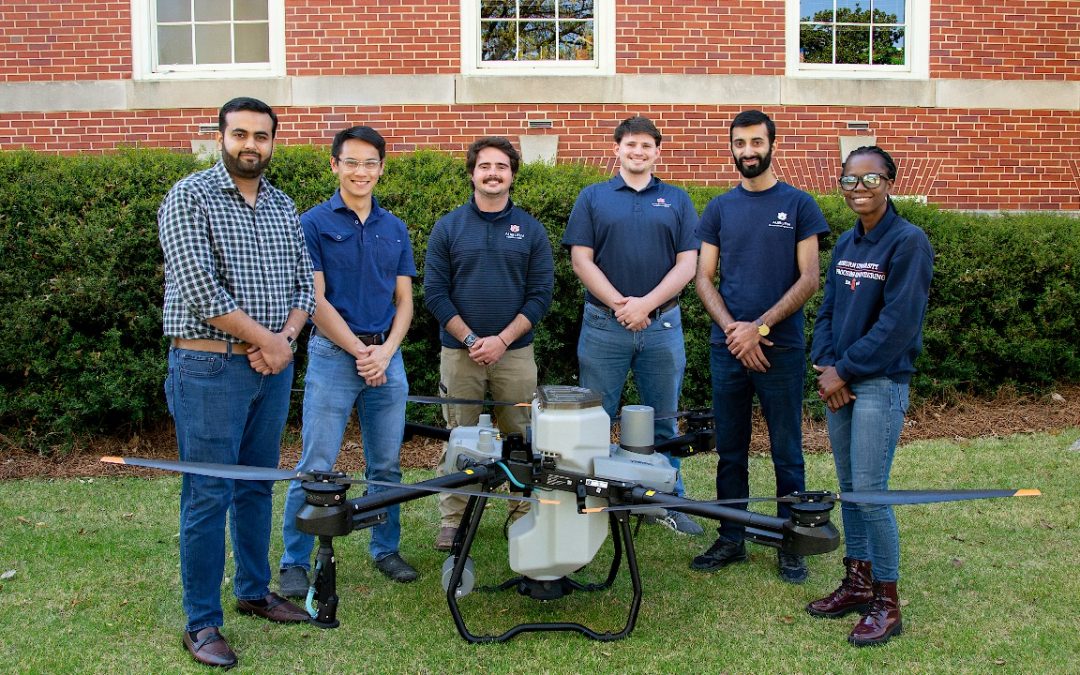
A team of both doctoral and undergraduate biosystems engineering students is tackling the age-old problem of precise fertilizer application with cutting-edge drone technology. According to NASA, they’re tackling it well.

When Dr. Rana Waqar Tabish came to Auburn to begin working toward his PhD, he already had one doctorate under his belt….

By Graham Brooks New and special beer releases are a point of pride at New Realm Brewing–Auburn and that will continue with the unveiling of Pine Hill Pumpkin Amber as a new pumpkin beer just in time for spooky season and Oktoberfest. Named after Auburn’s oldest...

At Auburn University, students are taught to meet a practical world with hard work, knowledge to work wisely, and minds and hands trained to work skillfully. Few places embody this charge outlined in the Auburn Creed more vividly than the Auburn University Equestrian...

It was in Honduras, at the Soto Cano Air Base, where Capt. Tolulope Morawo and Lt. Col. Steven “Mark” Pelham met an enemy they had never encountered before. Morawo, an entomologist, and Pelham, a veterinarian, were on Army Reserve deployment facing the New World...

The College of Agriculture Scholarship Committee selected Alexandra “Lexie” Hare as the summer 2025 Dean’s Award recipient, recognizing her for academic excellence and service to the College of Agriculture. Hare graduated Saturday with a Bachelor of Science in...

A Madison, Alabama, native will lead her classmates into the 2025 commencement ceremony at Auburn University this Saturday. Ella Taylor, an agricultural science major with a minor in poultry science, is the August 2025 graduation marshal for the College of...

By Amy Weaver Auburn University often adds academic programs in response to workforce demand and societal needs. One of the latest additions is a major in biological and agricultural technology management. With the acronym BATM, it is colloquially called the “Batman”...

By Chris Anthony Far from the rolling plains of Alabama, the tiny mountain community of Haines, Alaska, (population 1,700) might be the last place you would expect to hear a hearty “War Eagle” as an eagle soars overhead. But that is slowly changing with Gabe Hallmark...

The annual U.S. Beekeeping Survey results are in for the 2024-2025 calendar year. In collaboration with Auburn University, the Apiary Inspectors of America, Oregon State University and others, the national survey estimated that 55.6% of managed honey bee colonies were...

Recent graduate Ali Boardwine received a particularly special accolade before graduating on May 11 with a Bachelor of Science in bioprocess engineering and minors in business and public health. The Career Discovery and Success office within the Office of the Provost...

The Auburn University College of Agriculture and Campus Dining recently added four new container farms to its vertical farming operation. The four new farms, outfitted in shipping containers, are from AmplifiedAg, a leader in indoor agriculture. Auburn now has six...

Hosted by the Auburn University College of Agriculture, The Market at Ag Heritage Park is an open-air, growers-only farmers market offering fresh, locally grown fruits and vegetables, herbs, ornamental plants and cut flowers as well as locally produced jams and...

Advises future ag students to get involved The spring 2025 graduation marshal for the Auburn University College of Agriculture is a familiar face around Comer Hall. Will Rich was selected from among the agriculture spring graduates to represent the college at the...

William Batchelor has been tapped as the new director of the Auburn University Water Resources Center, effective immediately. As director, he will lead a team of scientists working with communities, farmers, governments and agencies across Alabama to improve water...

By Amy Weaver Contrary to what the name might suggest, the work currently happening in the Green Infrastructure Lab at Auburn has nothing to do with green-colored roads or buildings. No Emerald City here. “Green infrastructure is an approach to managing water and...

Three students in the College of Agriculture recently received distinguished honors from the Auburn University President’s Office. Savannah Busby received the Presidential Graduate Opportunity Fellowship, a highly competitive opportunity awarded to only a few incoming...

Following a national search, Mykel Taylor was named head of the Auburn University Department of Agricultural Economics and Rural Sociology, effective April 15. She had served as interim head of the department since fall 2024. “Dr. Taylor’s effective leadership, along...

Auburn University College of Agriculture student Leah Johnson received a highly competitive collegiate internship with HudsonAlpha, a premier institute for biotechnology. She is the second student from the applied biotechnology major in the Department of Entomology...

Hosted by the College of Sciences and Mathematics, in collaboration with the College of Agriculture, this year’s Comer Awards were presented to three graduating Auburn University students….

Geoff Williams, associate professor, graduate program officer and longtime director of the AU-Bees Lab, is director of the new Auburn University Bee Center, effective Tuesday, April 1. In February, the Board of Trustees approved the establishment of the Auburn...

A team of both doctoral and undergraduate biosystems engineering students is tackling the age-old problem of precise fertilizer application with cutting-edge drone technology. According to NASA, they’re tackling it well.